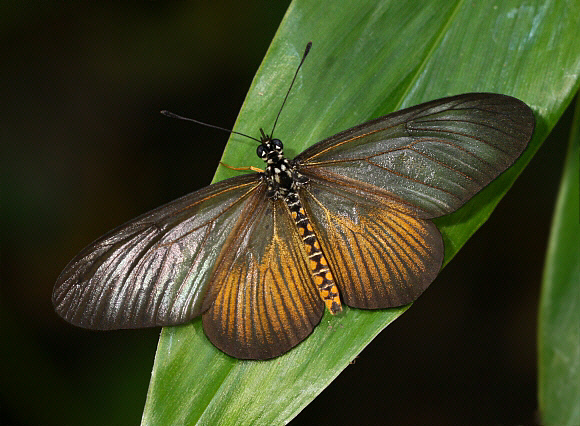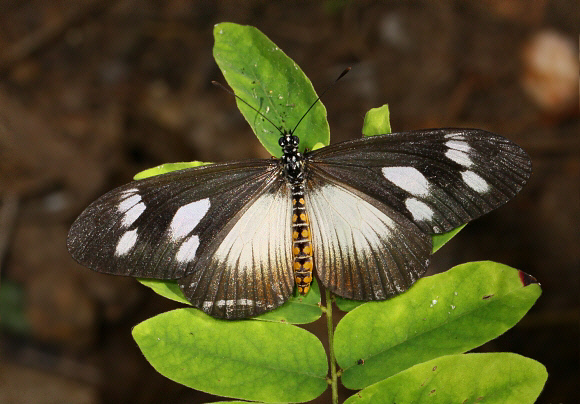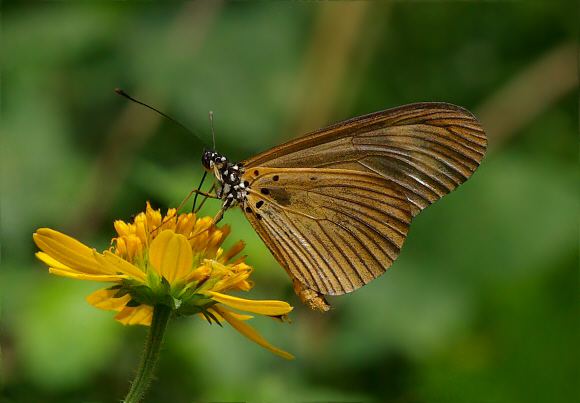
Introduction
There are 228 Acraea species, of which 223 are Afrotropical in distribution. The majority are found in the forests and savannahs of East Africa, while about 60 are found in West Africa. Beyond Africa a further 5 species occur in the Oriental region, and another is found in Australia / New Guinea. In the neotropical region there are 50 additional species, but these are normally placed in the genera Actinote, Altinote and Abananote due to differences in venation and genitalia.
All Acraea species have elongate forewings and rounded hindwings. The wings are thinly scaled and in many species are semi-transparent. The scales wear off very easily so that insects more than 4 or 5 days old have a glassy or greasy appearance. The majority of species have a predominantly brownish or greyish ground colour, marked with bands or patches of red or orange. The basal area of the underside hindwings of most species is marked with a pattern of small black spots. Females of several species including lycoa are marked instead with white.
Acraea lycoa is distributed from Sierra Leone to n.w. Tanzania.
Habitats
This species inhabits open or degraded rainforest, and can be seen in glades, along roadsides and in village gardens. It is also quite tolerant of drier, more open habitats, e.g. the savannah / forest transition zone, but only encroaches into these areas in numbers during the rainy season.
Lifecycle
The larval foodplants include Aneleima ( Commelinaceae ) Fleurya and Pouzolzia ( Urticaceae ).

Adult behaviour
The drab males are easily overlooked, but females are encountered commonly, flying around Eupatorium and other wild flowers in open sunny areas within forest.

